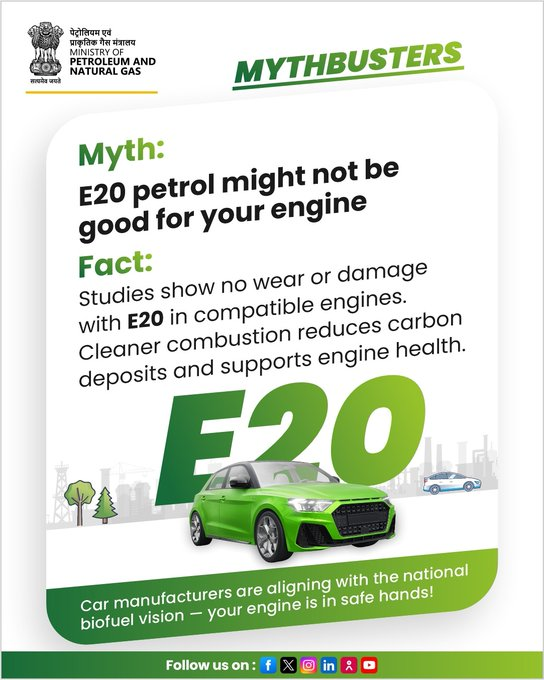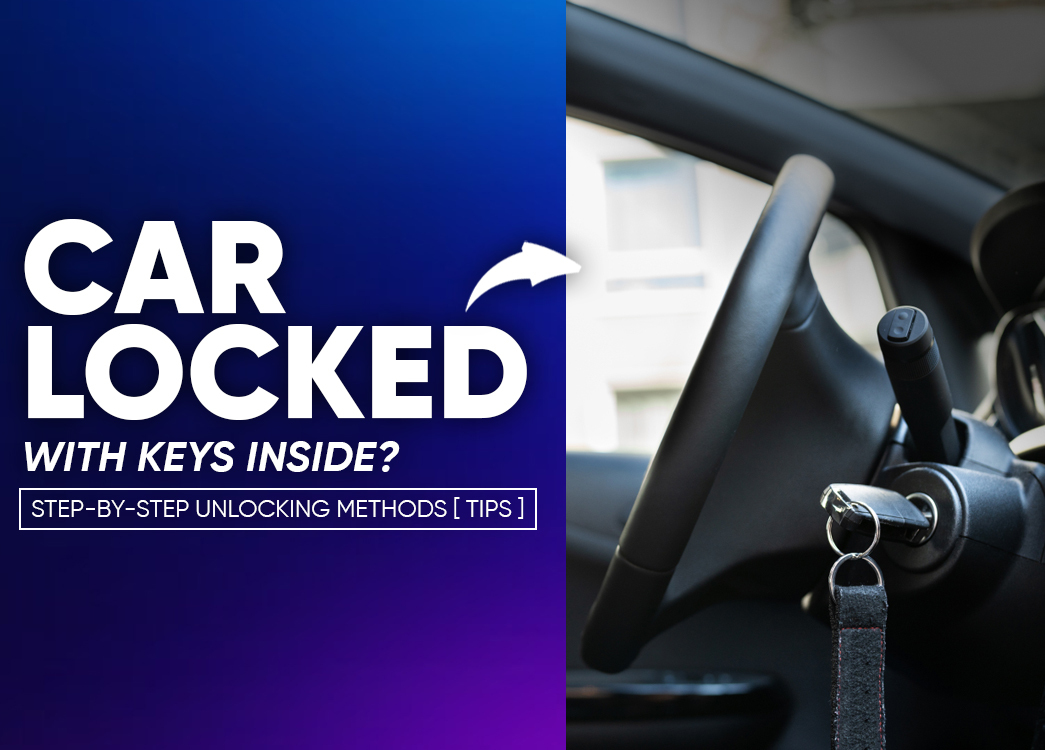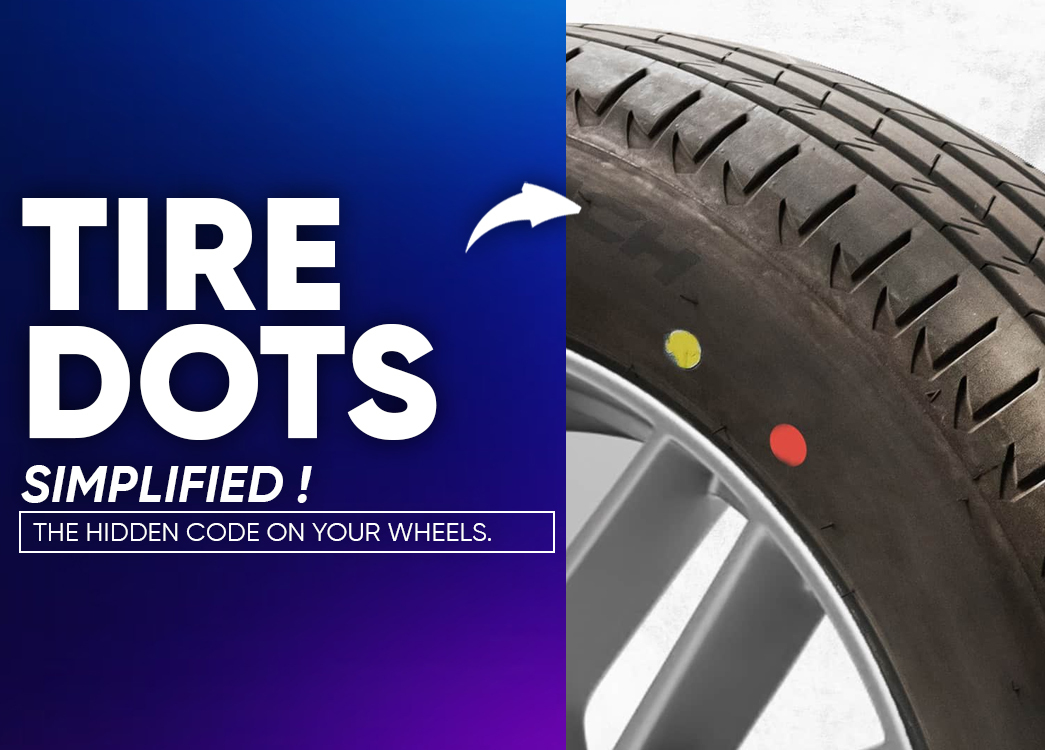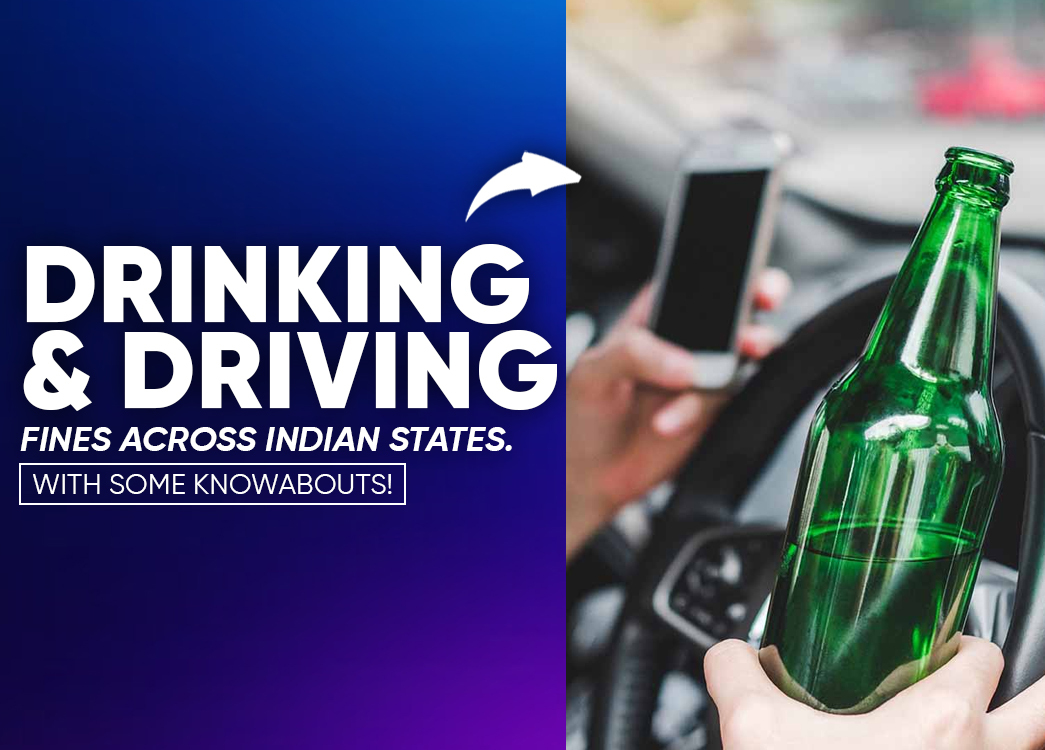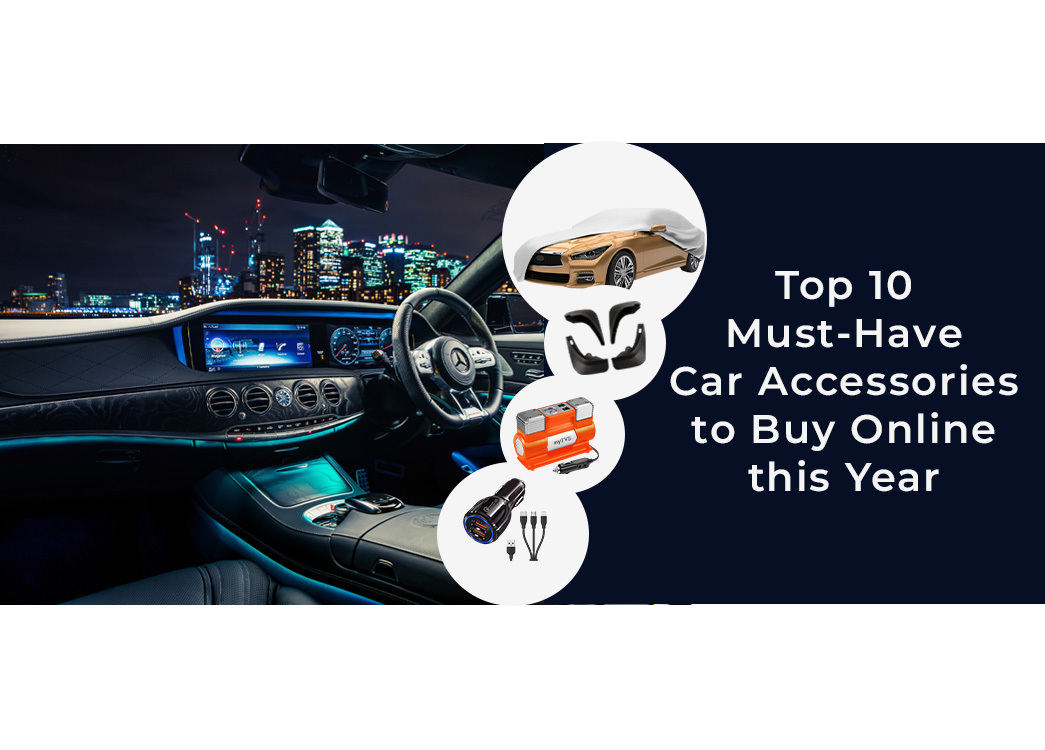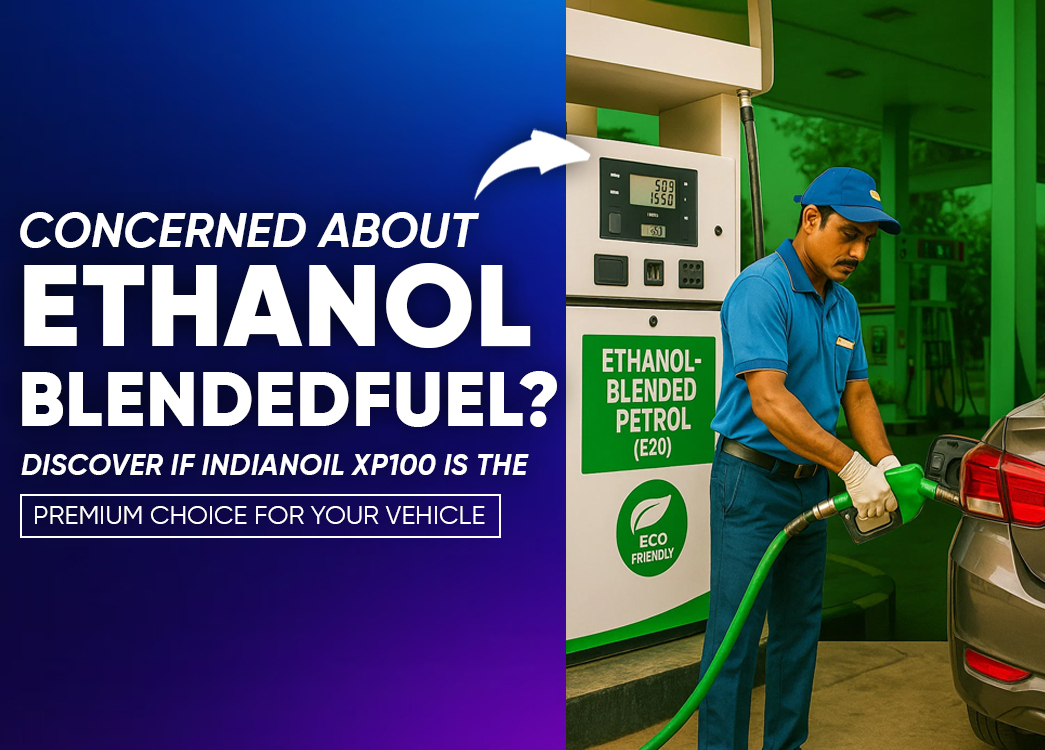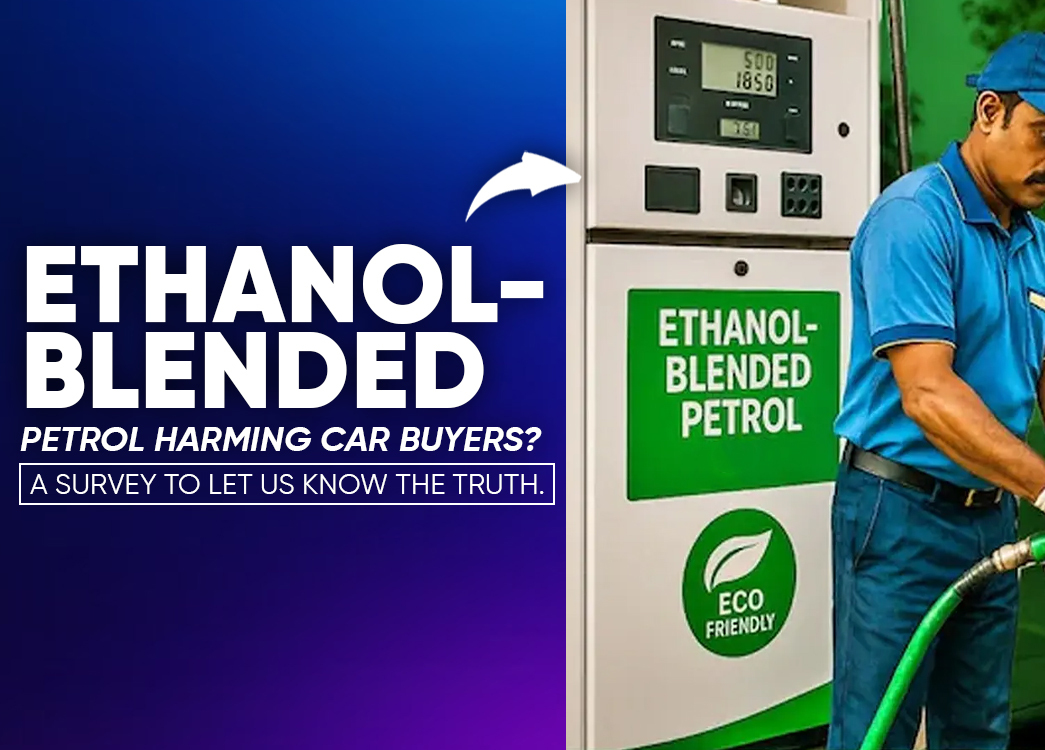
By creckk On 20-08-2025 at 11:52 am
E20 Petrol Saga: Impact on New & Older Cars
E20 Petrol Saga: Will Owners Of New Cars Be Affected Or Older Cars?
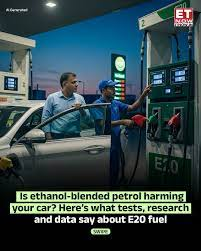
E20 petrol is making headlines, and car owners are buzzing with questions. As the name suggests, it is petrol blended with 20% ethanol. The government is pushing this shift to cut down our massive oil import bill and make fuels a little friendlier for the environment. Until now, E10 (10% ethanol blend) has been the standard. But with E20 entering pumps across India, the debate begins how does it affect new cars vs older ones?
Is Ethanol-Blended Petrol Harming Your Car?
Research and real-world tests say E20 fuel is safe for newer cars but could raise concerns for older vehicles over time.
Corrosion, Leaks & Repairs?
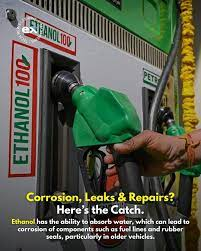
Ethanol absorbs water, which can corrode fuel lines and rubber seals especially in older cars. That’s why the age of your car matters with E20 fuel.
This ‘Green’ Fuel Could Hurt Your Mileage
Drivers of older cars might notice a 1-6% dip in fuel efficiency with E20 petrol, since their engines were never designed for high ethanol blends.
Will Ethanol Wreck Your Engine?
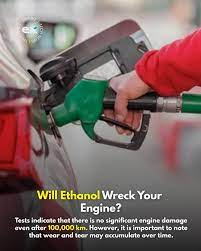
Long-term studies show no major damage even after 1,00,000 km with E20 in compatible cars. But yes, slow wear and tear can build up in older models.
Greener Fuel on the Rise
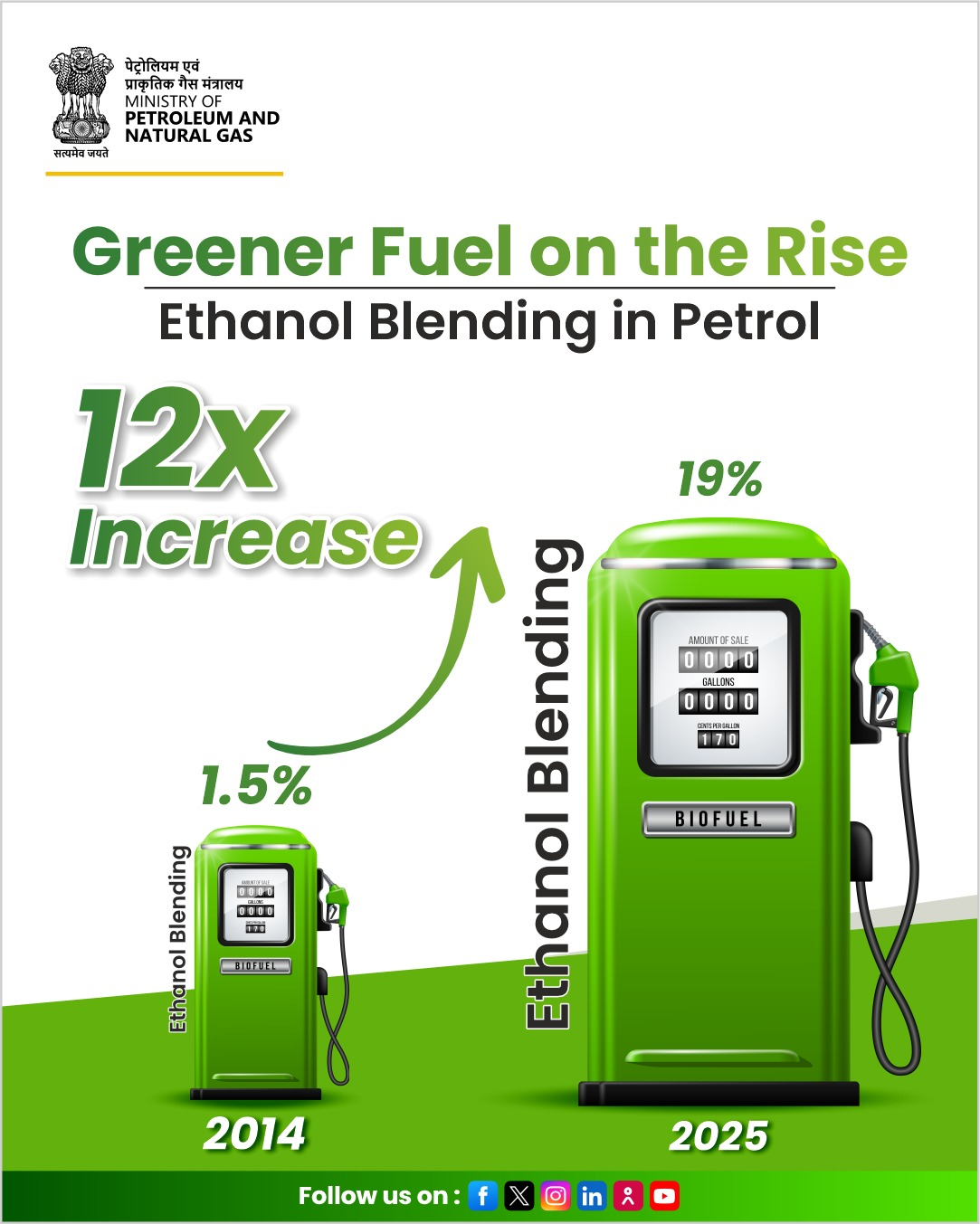
India has boosted ethanol blending from 1.5% in 2014 to nearly 20% by 2025 a massive leap towards greener fuel adoption.
Promoting Bio-Fuels, Protecting Environment
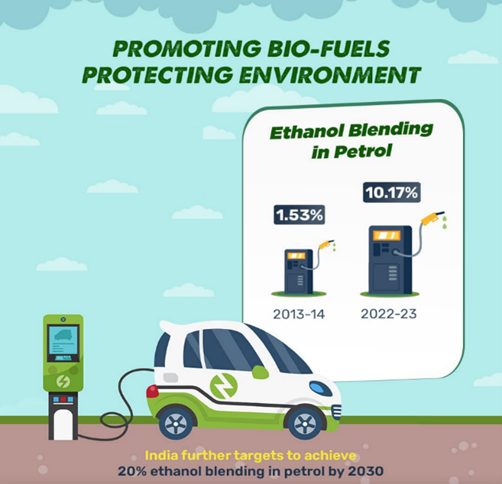
Ethanol blending jumped from 1.53% in 2013 to over 10% in 2022. The next goal: 20% blending by 2030 to cut emissions and oil imports.
E20 Fuel in India: Boost or Bust?
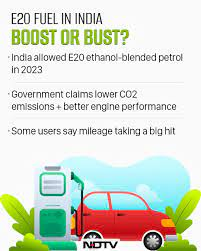
Allowed in 2023, E20 promises lower CO2 emissions and better performance—but many users still report noticeable mileage drops.
What Cars Can Use E20 Fuel?
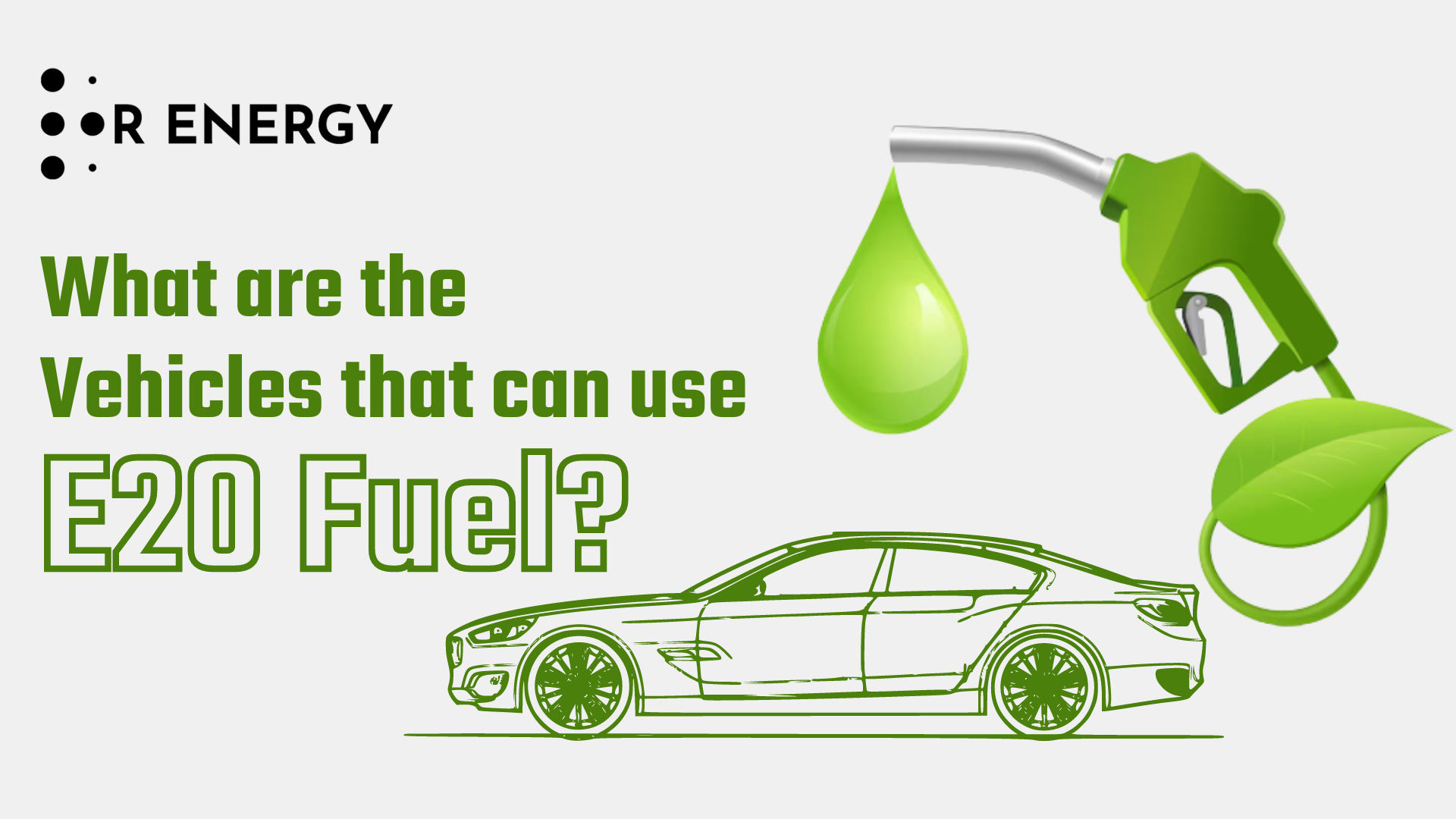
All cars made after April 1, 2023, are E20-ready. Some older ones may also be compatible, but always check your car manual first.
Myth vs Fact
Myth: E20 petrol is bad for your engine.
Fact: Tests prove no harm in E20-ready cars. In fact, it improves combustion and reduces carbon deposits.
New Cars Are Safe
If your car is brand-new, you can relax. Most carmakers started rolling out E20-compatible models much earlier, and every car manufactured after April 1, 2023 is officially E20-ready. Some older models before this date are also compatible. To be sure, check your car’s manual or the fuel recommendation sticker near the fuel lid.
What If My Car Is Older?
Here’s where it gets tricky. Cars made between 2012 and early 2023 are compliant with E10 fuel. Using E20 in these cars won’t cause instant damage, but it can bring a few concerns:
- Mileage Drop: As reported by users and confirmed by ARAI, expect a slight dip in fuel economy with E20.
- Wear and Tear: Ethanol is corrosive, so long-term use could cause internal wear, especially in aging engines and fuel systems.
- Solution: Use additives or switch to high-octane petrol without ethanol. However, the latter is much more expensive.
What About The Warranty?
This is the grey area car owners need to watch out for. Carmakers like Toyota have already clarified that if you use fuel not recommended for your car, any engine damage may void the warranty. So, if your car is not marked E20-compliant, the risk is yours to take.
What Are The Solutions?
The industry knows this transition won’t be smooth. Possible solutions include:
- Offering both E10 and E20 at fuel stations during the transition phase.
- Carmakers exploring upgrade kits to make older cars E20-compatible, though this is far more complex than a simple tweak.
- Raising awareness among owners so they know what their car is compatible with before filling up.
FAQs:
What is E20 petrol?
E20 petrol is regular petrol mixed with 20% ethanol. It reduces oil dependency and is better for the environment compared to standard E10 fuel.
Are new cars affected by E20 fuel?
No. All cars made after April 1, 2023, are E20-compatible. Many brands had already started releasing E20-ready models before this date too.
What happens if I use E20 in an older car?
Cars made between 2012 and 2023 (E10-ready) may see a slight mileage drop. Long-term wear could happen since ethanol is corrosive, but no instant damage will occur.
Will my warranty be void if I use E20?
Yes, if your car is not marked as E20-ready. For instance, Toyota has stated that using non-recommended fuel that causes damage will void the warranty.
What can older car owners do?
Use recommended additives or high-octane petrol without ethanol (though expensive). Keeping an eye on manufacturer updates for possible E20 upgrade kits is also advised.
Why is India shifting to E20?
The move reduces our heavy oil import bill and is environmentally friendlier. It’s part of India’s larger push toward sustainable mobility.
Related posts
